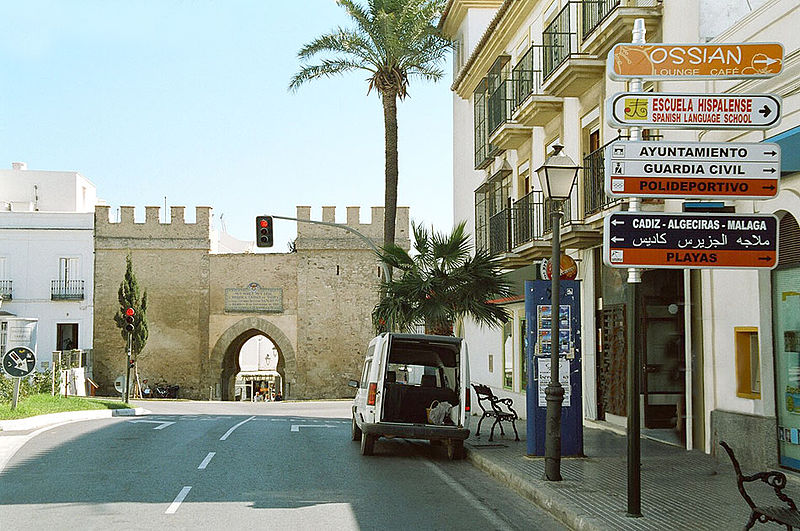“Granada,” Dan said, “is a city of black sheep.” We were standing on his balcony overlooking the crumbling rooftops of the Albaicin, the old Moorish quarter where we both lived. A year before meeting Dan and other writers, I had come to Granada, Spain, to teach English. Maybe it was the immersion in Spanish, or maybe it was my job—teaching art classes in a preschool, which consisted mainly of singing about the primary colors—but within a month, I was desperate for polysyllabic English words and complex sentences. It was this literary homesickness that drove me to write seriously for the first time. Soon, I was spending my paycheck on Amazon orders and huddling in the fifth floor stairwell of my ancient apartment to use the landlord’s WiFi and read interviews with my favorite authors. I quickly became hungry for a literary community that existed beyond my laptop.
After a year of writing alone, my hunger took the form of a fake email address and a flyer depicting a glum Ernest Hemingway working at his desk (“Hemingway didn't need a writing group in Spain. Then again, he shot himself in the head. Save yourself,”). Within two weeks I found myself the least experienced member of The Granada Writers. We were three poets, three crime writers, two fiction writers, and me, a novice who had just discovered Flannery O’Connor. During one of our first meetings, the group critiqued my MFA application and gave me indispensable advice drawn from their vast range of experiences. Two of the writers were also accomplished journalists, and from them I learned the importance of writing compelling sentences that advance action and feed a reader’s interest. In addition to occasionally suggesting that I murder a character or two, the crime writers taught me to remember that, above all, a writer is a storyteller. The poets invented ingenious writing prompts that had us people-watching in crowded bars, roaming around private gardens, and bending language in new ways. We held long meetings until well after midnight, and I realized that I had miraculously stumbled upon a makeshift MFA. In our daily lives, we read and spoke and joked in Spanish, but each of us came home and hungered to work within our mother tongue. We were misfits drawn together by a shared obsession.
When I wrote “Dovehouse,” published in NAR’s Winter 2013 issue, I had just returned from an off-season trip to the coast. Tarifa is a hub for European windsurfers, filled with ex-pat bars and surf shops, and yet it is an extremely ghostly place. As I walked the empty streets of Tarifa’s historic district, I felt both haunted by this city and as if I were a ghost myself. I thought of Dan’s theory of black sheep. The black sheep weren't only the hippies and the ex-pats of Granada who had left their countries in favor of a city of contradictions. Our writing group was also united by this compulsion to live double lives, this outsider impulse. While we read Spanish newspapers and made Spanish friends, we also allowed ourselves to be observers and outcasts. Our solitary status allowed us to examine our lives and write critically about the world as we saw it.
Last fall, Barry Lopez spoke at Bowling Green State University, where I am now an MFA candidate. “You can’t teach hunger,” he insisted. A hunger to write, I understood, must emerge from a desert, from a place of resistance. This urgency may not be teachable, but it is certainly within reach.
Step one: leave your country.
Step two: be a black sheep.
Catherine Carberry lives in Ohio, where she is an MFA candidate at Bowling Green University and an Assistant Editor of Mid-American Review. Her fiction has appeared or is forthcoming in publications including Word Riot, Necessary Fiction, New Madrid, and Cream City Review. She writes book reviews for The Rumpus. Catherine's story, "Dovehouse," is featured in issue 298.1.
Photo by Manfred Werner.



